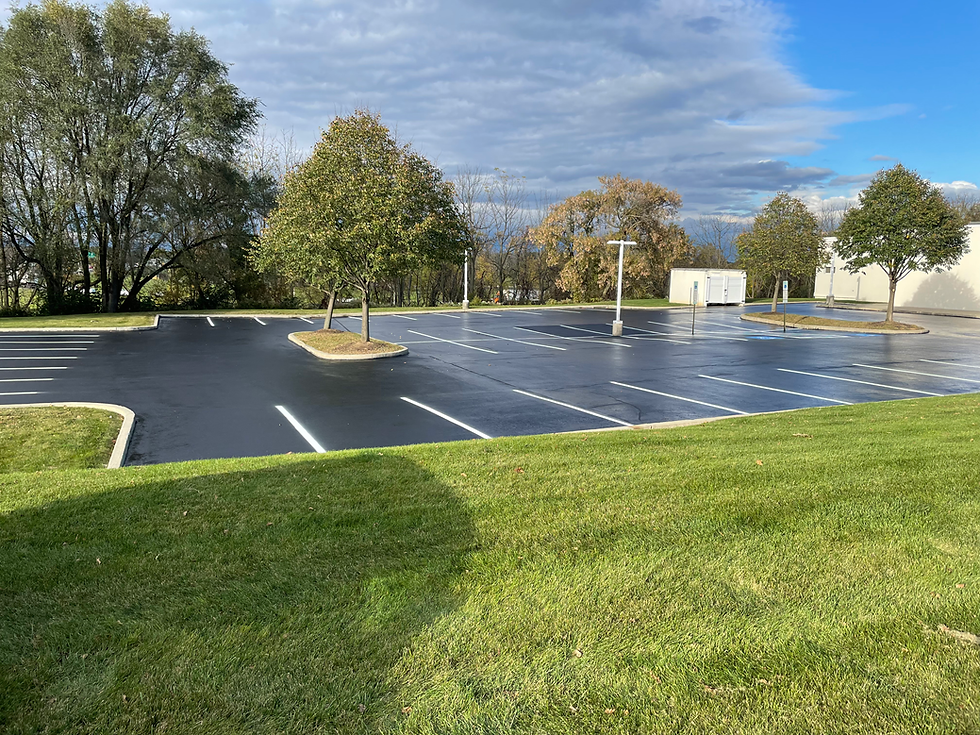The Drawbacks of Concrete Driveways vs. Pros of Asphalt
- Hick's Paving
- Apr 23, 2024
- 3 min read
As a homeowner in Lehigh Valley, you may be facing the dilemma of choosing between concrete and asphalt driveways. The two popular paving materials have their pros and cons you need to consider.
In this post, we explore the drawbacks of concrete driveways compared to the advantages of asphalt to help you make the right decision.

Common issues of driveways
Like other surfaces, driveways are also subject to some issues. One of the top driveway problems is cracking, resulting from weather changes and improper installation.
Other problems include potholes, staining, sinking, and drainage issues, which is why it's crucial to select the right material for your driveway.
Drawbacks of concrete driveways vs. pros of asphalt
Cost of installation
Drawback of concrete: high driveway installation cost
A new driveway is a significant investment. However, you can expect to spend more installing concrete driveways than asphalt. On average, concrete costs about 45 to 50 percent more to install compared to asphalt. While they don't require regular maintenance, entire sections need to be replaced when cracks appear, which costs a lot.
Pro of asphalt: Low driveway installation cost
On the contrary, asphalt costs a lot less to install, saving you a significant amount of money you can use for other things. It's also easier and cost-effective to fix the potholes and cracks in asphalt driveways.
Curing time
Drawback of concrete: longer curing time
You will have to wait several days before you can drive on your new concrete driveway, as it takes around a week to cure and weeks before reaching full strength. This can pose a significant challenge, especially if you don't have other options.
Pro of asphalt: shorter curing time
Asphalt driveways can be installed much faster than concrete driveways. Once the asphalt is laid, it only takes a short time to cool and harden, allowing you to use your driveway sooner.
Snow melting
Drawback of concrete: poor snow melting
Snow doesn't melt fast on concrete driveways, leading to longer periods of snow and ice accumulation and increasing the odds of potential hazards.
Pro of asphalt: faster snow melting
Thanks to their darker colors that absorb more sunlight, asphalt melts snow much faster than concrete. As a result, you won't have to salt your driveway as much or use other deicing chemicals. Driving is also a lot safer.
Freeze-thaw cycles
Drawback of concrete: damage from freeze-thaw cycles
Freeze-thaw cycles are hard on concrete surfaces, especially in cold winters. Water can seep into concrete, freeze, and expand, causing cracks, surface degradation, and severe damage in the long run.
Pro of asphalt: resilient to freeze-thaw damage
Asphalt is flexible, enabling it to expand and contract as temperature changes. This resilience to freeze-thaw cycles reduces the risk of cracking and deterioration, making asphalt the better choice in winter.
Stains and discolorations
Drawback of concrete: stains are visible
Stains from oil spills, rust, and other substances are more visible on concrete driveways, which can detract from their appearance and impact the overall aesthetics of your home.
Pro of asphalt: hides stains better
The dark color of asphalt helps to hide stains and spills, keeping the driveway looking cleaner and more attractive.

Transform your driveway with Lehigh Valley's #1 asphalt paving contractor
With its superior benefits, asphalt stands out as the choice material for homeowners looking to install a new driveway or renovate an existing one. Looking for long-lasting driveway paving services in the Lehigh Valley and nearby areas? We can help!
We've been paving since 1950 and will be glad to use our reliability, experience, and expertise to transform your driveway into a durable, functional, and beautiful feature of your home. Request an estimate today.





